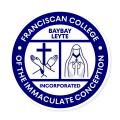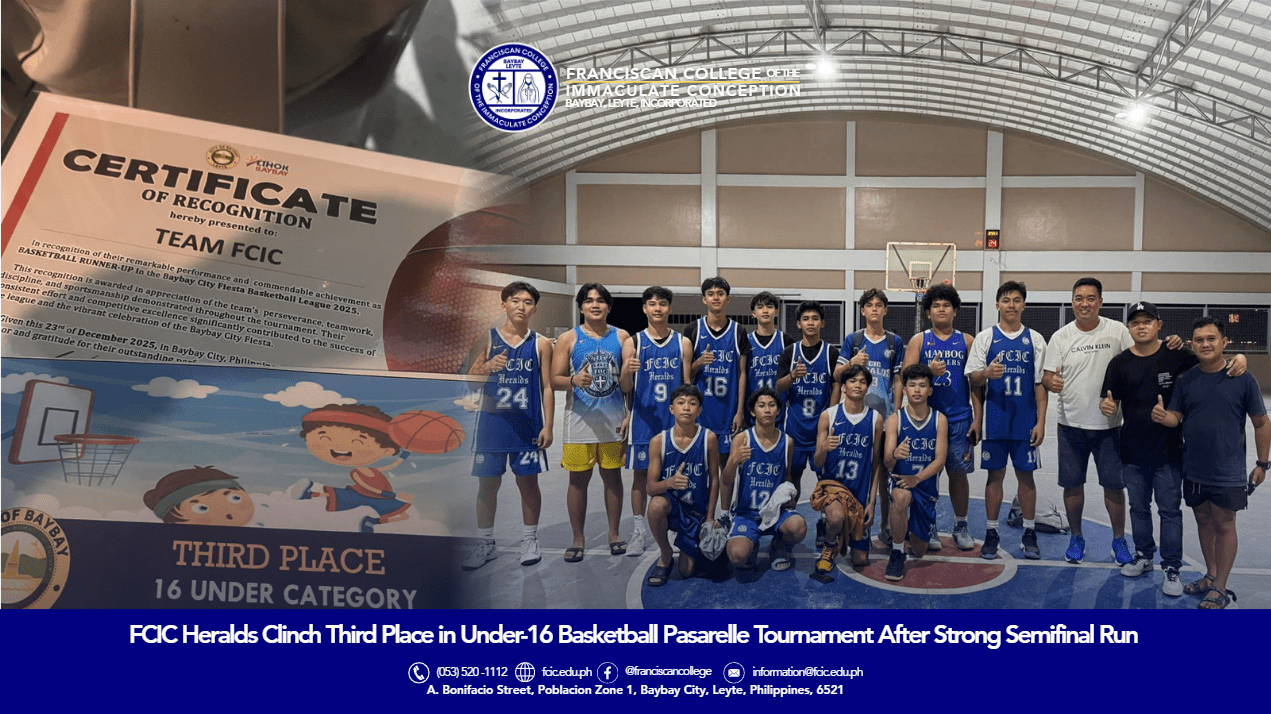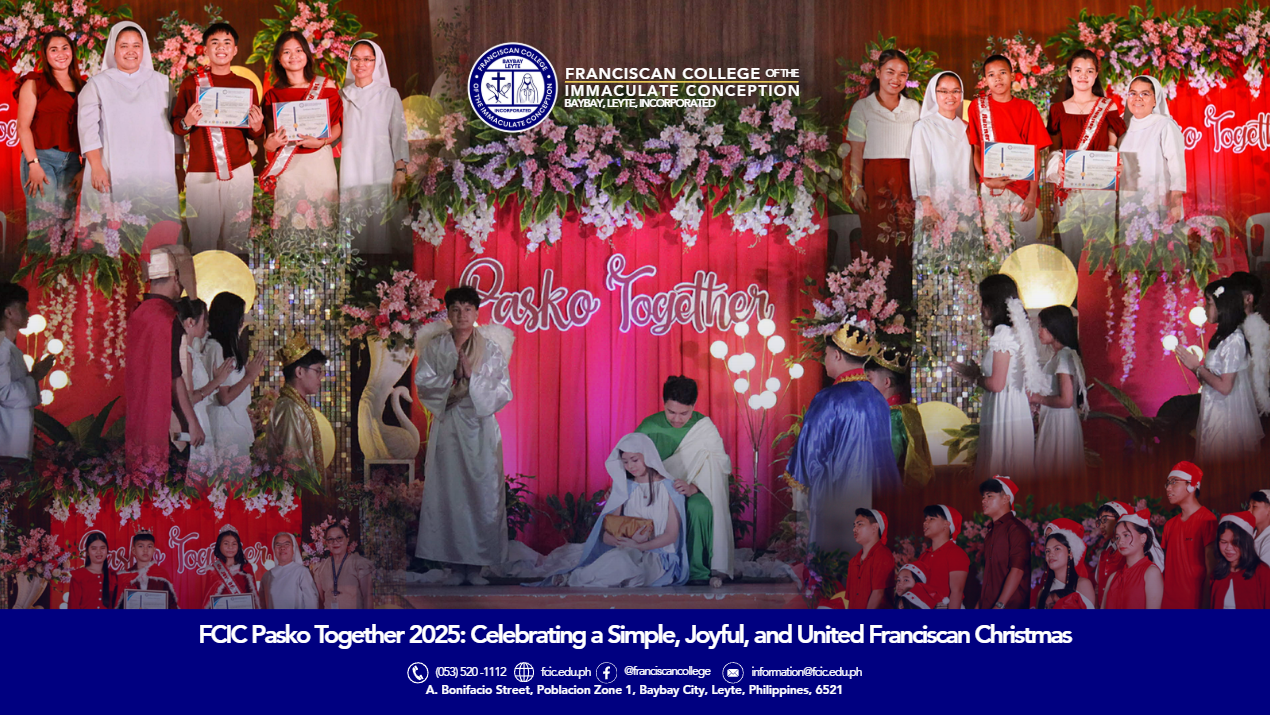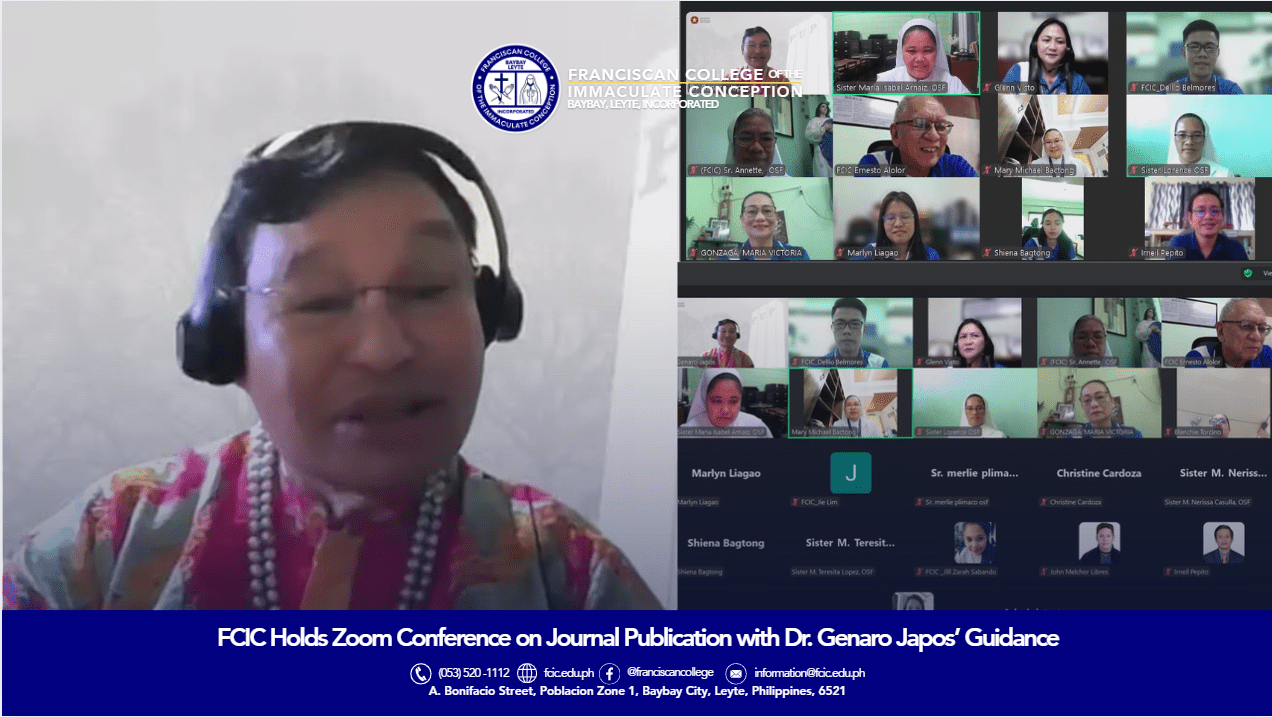Quality Assurance
Quality Statement
FCIC stands for quality Christian community-responsive education. To pursue this commitment, we continually improve the curriculum with Gospel values, combine programs for value innovation, embrace transnational education through internationalization, engage in an interdisciplinary approach to integral formation, exemplify Franciscan values, and efficiently utilize the resources for the most excellent results.
Quality Policy
Franciscan College of the Immaculate Conception is committed to meeting the requirements of relevant interested parties by:
- Developing lifelong learners who excel in values and academics;
- Improving continuously the institution’s academic programs, support services, and administrative systems; and
- Providing quality education.
Goals
Enhance the quality assurance mechanisms and practices at the Franciscan College of the Immaculate Conception to align with national and international standards, thereby ensuring excellence and attaining its vision, mission, and goals.
Objectives
1. Develop and implement a comprehensive self-assessment process to evaluate Franciscan College of the Immaculate Conception’s performance across the six of the accreditation framework, including Leadership and Governance, Resource Management, Teaching-Learning, Student Services, External Relations, and Research
2. Establish a strategic plan with clear objectives, action steps, and timelines to address identified areas for improvement and enhance the alignment with the PAASCU standards.
3. Enhance faculty and staff capacity through targeted training and professional development programs to equip them with the necessary skills and knowledge to effectively implement quality assurance practices aligned with national and international standards.
4. Foster a culture of continuous improvement and accountability by instituting mechanisms for ongoing monitoring, evaluation, and feedback to track progress, identify challenges, and adjust quality assurance processes as needed.
Franciscan College of the Immaculate Conception is committed to attaining quality in the following key areas:
1. Leadership and Governance
2. Resource Management
3. Teaching and Learning
4. Student Services
5. External Relations, and
6. Research






